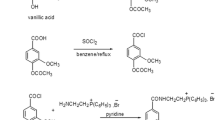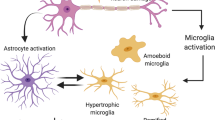Abstract
Parkinson's disease (PD) is a neuro-motor ailment that strikes adults in their older life and results in both motor and non-motor impairments. In neuronal and glial cells, PD has recently been linked to a dysregulated autophagic system and cerebral inflammation. Chloroquine (CQ), an anti-malarial drug, has been demonstrated to suppress autophagy in a variety of diseases, including cerebral ischemia, Alzheimer’s disease (AD), and Traumatic brain injury (TBI), while its involvement in PD is still unclear. BALB/c mice were randomly allocated to one of four groups: 1-methyl-4-phenyl-1, 2, 3, 6-tetrahydropyridine (MPTP), CQ treatment with or without MPTP, or control. The CQ treatment group received CQ (intraperitoneally, 8 mg/kg body weight) after 1 h of MPTP induction on day 1, and it lasted for 7 days. CQ therapy preserves dopamine levels stable, inhibits tyrosine hydroxylase (TH) positive dopaminergic cell death, and lowers oxidative stress. CQ reduces the behavioural, motor, and cognitive deficits caused by MPTP after injury. Furthermore, CQ therapy slowed aberrant neuronal autophagy (microtubule-associated protein-1 light chain 3B; LC3B & Beclin1) and lowered expression levels of the inflammatory cytokines interleukin 1 (IL-1β) and tumour necrosis factor (TNF-α) in the mice brain. In addition, CQ's antioxidant and anti-inflammatory effects were also tested in MPTP-mediated cell death in PC12 cells, demonstrating that CQ has a neurorestorative impact by successfully rescuing MPTP-induced ROS generation and cell loss. Our findings show that CQ’s can help to prevent dopaminergic degeneration and improve neurological function after MPTP intoxication by lowering the harmful effects of neuronal autophagy and cerebral inflammation.








Similar content being viewed by others
Data availability
The datasets used and/or analysed during the current study are available from the corresponding author on reasonable request.
Abbreviations
- CQ:
-
Chloroquine
- LC3B:
-
Microtubule-associated protein-1 light chain 3B
- MPTP:
-
1-Methyl-4-phenyl-1, 2, 3, 6-tetrahydropyridine hydrochloride
- 3-MA:
-
3-Methyladenine
- PD:
-
Parkinson disease
- ROS:
-
Reactive oxygen species
- SNpc:
-
Substantia nigra pars compacta
- TNF-α:
-
Tumour necrosis factor
- TH:
-
Tyrosine hydroxylase
References
An L et al (2010) Protective effect of effective part of Acanthopanacis senticosus on damage of PC12 cells induced by MPP+. Zhongguo Zhong Yao Za Zhi. 2010 Aug;35(15):2021-2026. PMID: 20931860.
Bae WY, Choi JS, Jeong JW (2018) The neuroprotective effects of cinnamic aldehyde in an MPTP mouse model of parkinson’s disease. Int J Mole Sci. Feb 12;19(2):551. https://doi.org/10.3390/ijms19020551
Baehrecke EH (2005) Autophagy: dual roles in life and death? Nat Rev Mol Cell Biol 6(6):505–510. https://doi.org/10.1038/nrm1666
Beers RF, Sizer IW (1952) A spectrophotometric method for measuring the breakdown of hydrogen peroxide by catalase. J Biol Chem 195(1):133–140. https://doi.org/10.1016/s0021-9258(19)50881-x
Brooks SP, Dunnett SB (2009) Tests to assess motor phenotype in mice : a user’ s guide. Nat Publ Group 10(7):519–529. https://doi.org/10.1038/nrn2652
Bursch W (2001) The autophagosomal-lysosomal compartment in programmed cell death. Cell Death Differ 8(6):569–581. https://doi.org/10.1038/sj.cdd.4400852
Calne D, William Langston J (1983) Aetiology of Parkinson’s disease. Lancet 322(8365–8366):1457–1459. https://doi.org/10.1016/S0140-6736(83)90802-4
Canini F et al (2009) Metyrapone decreases locomotion acutely. Neurosci Lett 457(1):41–44. https://doi.org/10.1016/j.neulet.2009.03.103
Carlberg I, Mannervik B (1985) [59] glutathione reductase. Method Enzymol 113:484–490. https://doi.org/10.1016/S0076-6879(85)13062-4
Castillo V et al (2015) Functional role of the disulfide isomerase ERp57 in axonal regeneration. PLoS ONE 10(9):e0136620. https://doi.org/10.1371/journal.pone.0136620
Castino R et al (2008) Suppression of autophagy precipitates neuronal cell death following low doses of methamphetamine. J Neurochem 106(3):1426–1439. https://doi.org/10.1111/j.1471-4159.2008.05488.x
Chen Y et al (2008) Oxidative stress induces autophagic cell death independent of apoptosis in transformed and cancer cells. Cell Death Differ 15(1):171–182. https://doi.org/10.1038/sj.cdd.4402233
Cherra SJ, Chu CT (2008) Autophagy in neuroprotection and neurodegeneration: a question of balance. Future Neurol 3(3):309–323. https://doi.org/10.2217/14796708.3.3.309
Cui CM et al (2015) Chloroquine exerts neuroprotection following traumatic brain injury via suppression of inflammation and neuronal autophagic death. Mol Med Rep 12(2):2323–2328. https://doi.org/10.3892/mmr.2015.3611
D’Amato RJ et al (1987) Evidence for neuromelanin involvement in MPTP-induced neurotoxicity. Nature 327(6120):324–326. https://doi.org/10.1038/327324a0
Dadakhujaev S et al (2010) Autophagy protects the rotenone-induced cell death in α-synuclein overexpressing SH-SY5Y cells. Neurosci Lett 472(1):47–52. https://doi.org/10.1016/j.neulet.2010.01.053
Dagda RK, Banerjee TD, Janda E (2013) How Parkinsonian toxins dysregulate the autophagy machinery. Int J Mol Sci 14(11):22163–22189. https://doi.org/10.3390/ijms141122163
Das G, Shravage BV, Baehrecke EH (2012) Regulation and function of autophagy during cell survival and cell death. Cold Spring Harb Perspect Biol 4(6):1–14. https://doi.org/10.1101/cshperspect.a008813
Dauer W, Przedborski S (2003) Review Parkinson’s disease : mechanisms and models. Neuron 39(6):889–909. https://doi.org/10.1016/s0896-6273(03)00568-3
Di Malta C et al (2012) A novel culprit in lysosomal storage disorders. Autophagy 8(December):1871–1872. https://doi.org/10.4161/auto.22184
Dickson DW (2007) Linking selective vulnerability to cell death mechanisms in Parkinson’s disease. Am J Pathol 170(1):16–19. https://doi.org/10.2353/ajpath.2007.061011
Dong XX, Wang Y, Qin ZH (2009) Molecular mechanisms of excitotoxicity and their relevance to pathogenesis of neurodegenerative diseases. Acta Pharmacol Sin 30(4):379–387. https://doi.org/10.1038/aps.2009.24
Du T et al (2010) Rosmarinic acid antagonized 1-methyl-4-phenylpyridinium (MPP +)-induced neurotoxicity in MES23.5 dopaminergic cells. Int J Toxicol 29(6):625–633. https://doi.org/10.1177/1091581810383705
Dupont N et al (2011) Autophagy-based unconventional secretory pathway for extracellular delivery of IL-1β. EMBO J 30(23):4701–4711. https://doi.org/10.1038/emboj.2011.398
Ghavami S et al (2014) Autophagy and apoptosis dysfunction in neurodegenerative disorders. Prog Neurobiol 112:24–49. https://doi.org/10.1016/j.pneurobio.2013.10.004
Glass CK et al (2010) Mechanisms underlying inflammation in neurodegeneration. Cell 140(6):918–934. https://doi.org/10.1016/j.cell.2010.02.016
Hedya SA, Safar MM, Bahgat AK (2019) Hydroxychloroquine antiparkinsonian potential: Nurr1 modulation versus autophagy inhibition. Behav Brain Res 365(January):82–88. https://doi.org/10.1016/j.bbr.2019.02.033
Hirata Y et al (2011) Chloroquine inhibits glutamate-induced death of a neuronal cell line by reducing reactive oxygen species through sigma-1 receptor. J Neurochem 119(4):839–847. https://doi.org/10.1111/j.1471-4159.2011.07464.x
Homewood CA et al (1972) Lysosomes, pH and the anti-malarial action of chloroquine. Nature 235(5332):50–52. https://doi.org/10.1038/235050a0
Hung KC et al (2014) Roles of autophagy in MPP+-induced neurotoxicity in vivo: the involvement of mitochondria and α-synuclein aggregation. PLoS ONE 9(3):1–9. https://doi.org/10.1371/journal.pone.0091074
Islam T (2016) Oxidative stress and mitochondrial dysfunction- linked neurodegenerative disorders. Neurol Res 6412(November):1–10. https://doi.org/10.1080/01616412.2016.1251711
Janku F et al (2011) Autophagy as a target for anticancer therapy. Nat Rev Clin Oncol 8(9):528–539. https://doi.org/10.1038/nrclinonc.2011.71
Jiang P, Dickson DW (2018) Parkinson’s disease: experimental models and reality. Acta Neuropathol 135(1):13–32. https://doi.org/10.1007/s00401-017-1788-5
Kim CH et al (2015) Nuclear receptor Nurr1 agonists enhance its dual functions and improve behavioral deficits in an animal model of Parkinson’s disease. Proc Natl Acad Sci USA 112(28):8756–8761. https://doi.org/10.1073/pnas.1509742112
Kimura T et al (2013) Chloroquine in cancer therapy: a double-edged sword of autophagy. Can Res 73(1):3–7. https://doi.org/10.1158/0008-5472.CAN-12-2464
Kuma A et al (2004) The role of autophagy during the early neonatal starvation period. Nature 432(7020):1032–1036. https://doi.org/10.1038/nature03029
Law BYK et al (2014) Natural small-molecule enhancers of autophagy induce autophagic cell death in apoptosis-defective cells. Sci Rep 4:1–14. https://doi.org/10.1038/srep05510
Lin MT, Beal MF (2006) Mitochondrial dysfunction and oxidative stress in neurodegenerative diseases. Nature 443(7113):787–795. https://doi.org/10.1038/nature05292
Liu C et al (2010) Autophagy and protein aggregation after brain ischemia. J Neurochem 115(1):68–78. https://doi.org/10.1111/j.1471-4159.2010.06905.x
Liu J et al (2018) Piperlongumine restores the balance of autophagy and apoptosis by increasing BCL2 phosphorylation in rotenone-induced Parkinson disease models. Autophagy 14(5):845–861. https://doi.org/10.1080/15548627.2017.1390636
Lopez G, Torres K, Lev D (2011) Autophagy blockade enhances HDAC inhibitors’ pro-apoptotic: effects potential implications for the treatment of a therapeutic-resistant malignancy. Autophagy 7(4):440–441. https://doi.org/10.4161/auto.7.4.14680
Ma S et al (2017) Ferroptosis and autophagy induced cell death occur independently after siramesine and lapatinib treatment in breast cancer cells. PLoS ONE 12(8):1–14. https://doi.org/10.1371/journal.pone.0182921
Manna S et al (2006) Neuropharmacological effects of deltamethrin in rats. J Vet Sci 7(2):133–136. https://doi.org/10.4142/jvs.2006.7.2.133
Marklund S, Marklund G (1974) Involvement of the superoxide anion radical in the autoxidation of pyrogallol and a convenient assay for superoxide dismutase. Eur J Biochem 47(3):469–474. https://doi.org/10.1111/j.1432-1033.1974.tb03714.x
McGEER PL (2004) Inflammation and the degenerative diseases of aging. Ann N Y Acad Sci 1035(1):104–116. https://doi.org/10.1196/annals.1332.007
Mizushima N et al (2008) Autophagy fights disease through cellular’. Nature 451(February):1069–1075. https://doi.org/10.1038/nature06639
Moon HE, Paek SH (2015) Mitochondrial dysfunction in Parkinson’s disease. Exp Neurobiol 24(2):103–116. https://doi.org/10.5607/en.2015.24.2.103
Nash Y et al (2017) DJ-1 deficiency impairs autophagy and reduces alpha-synuclein phagocytosis by microglia. J Neurochem 143(5):584–594. https://doi.org/10.1111/jnc.14222
Niranjan R (2014) The role of inflammatory and oxidative stress mechanisms in the pathogenesis of Parkinson’s disease: focus on astrocytes. Mol Neurobiol 49(1):28–38. https://doi.org/10.1007/s12035-013-8483-x
Nishi K, Kondo T, Narabayashi H (1989) Difference in recovery patterns of striatal dopamine content, tyrosine hydroxylase activity and total biopterin content after 1-methyl-4-phenyl-1,2,3,6-tetrahydropyridine (MPTP) administration: a comparison of young and older mice. Brain Res 489(1):157–162. https://doi.org/10.1016/0006-8993(89)90018-8
Noldus LPJJ, Spink AJ, Tegelenbosch RAJ (2001) EthoVision: a versatile video tracking system for automation of behavioral experiments. Behav Res Methods Instrum Comput 33(3):398–414
Nopparat C et al (2014) 1-Methyl-4-phenylpyridinium-induced cell death via autophagy through a Bcl-2/Beclin 1 complex-dependent pathway. Neurochem Res 39(2):225–232. https://doi.org/10.1007/s11064-013-1208-8
Ohkawa H, Ohishi N, Yagi K (1979) Assay for lipid peroxides in animal tissues by thiobarbituric acid reaction. Anal Biochem 95(2):351–358. https://doi.org/10.1016/0003-2697(79)90738-3
Parekh P et al (2019) A cleaning crew: the pursuit of autophagy in Parkinson’s disease. ACS Chem Neurosci 10(9):3914–3926. https://doi.org/10.1021/acschemneuro.9b00244
Rocha NP, De Miranda AS, Teixeira AL (2015) Insights into neuroinflammation in Parkinson’s disease: from biomarkers to anti-inflammatory based therapies. BioMed Res Int. https://doi.org/10.1155/2015/628192
Rubinsztein DC et al (2005) Autophagy and its possible roles in nervous system diseases, damage and repair. Autophagy 1(1):11–22. https://doi.org/10.4161/auto.1.1.1513
Sinha AK (1972) Colorimetric assay of catalase. Anal Biochem 47(2):389–394. https://doi.org/10.1016/0003-2697(72)90132-7
Slater AFG (1993) Chloroquine: mechanism of drug action and resistance in plasmodium falciparum. Pharmacol Ther 57(2–3):203–235. https://doi.org/10.1016/0163-7258(93)90056-J
Sotelo J, Briceño E, López-González MA (2006) Adding chloroquine to conventional treatment for glioblastoma multiforme. Ann Intern Med 144(5):337. https://doi.org/10.7326/0003-4819-144-5-200603070-00008
Soto C, Pritzkow S (2018) ‘Protein misfolding, aggregation, and conformational strains in neurodegenerative diseases.’ Nat Neurosci 21(10):1332–1340. https://doi.org/10.1038/s41593-018-0235-9
Takács-Vellai K, Bayci A, Vellai T (2006) Autophagy in neuronal cell loss: a road to death. BioEssays 28(11):1126–1131. https://doi.org/10.1002/bies.20489
Thomé R et al (2013) Chloroquine treatment enhances regulatory T cells and reduces the severity of experimental autoimmune encephalomyelitis. PLoS ONE 8(6):1–11. https://doi.org/10.1371/journal.pone.0065913
Wallace DJ et al (2012) New insights into mechanisms of therapeutic effects of antimalarial agents in SLE. Nat Rev Rheumatol 8(9):522–533. https://doi.org/10.1038/nrrheum.2012.106
Wang Q, Liu Y, Zhou J (2015) Neuroinflammation in Parkinson’s disease and its potential as therapeutic target. Transl Neurodegener 4(1):1–9. https://doi.org/10.1186/s40035-015-0042-0
Weng M et al (2018) The sources of reactive oxygen species and its possible role in the pathogenesis of Parkinson’s disease. Parkinson’s Dis. https://doi.org/10.1155/2018/9163040
Zhang JY et al (2009) Inhibition of autophagy causes tau proteolysis by activating calpain in rat brain. J Alzheimer’s Dis 16(1):39–47. https://doi.org/10.3233/JAD-2009-0908
Zhu H et al (2017) Carbidopa, a drug in use for management of Parkinson disease inhibits T cell activation and autoimmunity. PLoS ONE 12(9):1–14. https://doi.org/10.1371/journal.pone.0183484
Acknowledgements
The authors thank the Indian Council of Medical Research (ICMR), New Delhi and research committee of King George's Medical University's for supporting this work.
Funding
The Indian Council of Medical Research (ICMR), New Delhi, India, awarded Ms. Shipra Kartik a senior research fellowship (Project-3/1/2/99/Neuro/2018-NCD-I).
Author information
Authors and Affiliations
Contributions
The experiment was devised by SK and RP. SK performed all of the experiments and wrote the manuscript with the help of MJC, under the guidance of RP. MK assisted with the pathological analysis and RN provided a Technical advice. DUB and MB help in cellular model studies.
Corresponding author
Ethics declarations
Conflict of interest
None.
Ethical approval
All of the experiments were granted permission by the King George's Medical University's (KGMU) Institutional Animal Ethics Committee (project 88/IAEC/2017).
Human rights
Not applicable.
Animal rights
All of the tests were authorised by the King George's Medical University's (KGMU) Institutional Animal Ethics Committee in Lucknow.
Consent to participate
Not applicable.
Additional information
Publisher's Note
Springer Nature remains neutral with regard to jurisdictional claims in published maps and institutional affiliations.
Rights and permissions
Springer Nature or its licensor (e.g. a society or other partner) holds exclusive rights to this article under a publishing agreement with the author(s) or other rightsholder(s); author self-archiving of the accepted manuscript version of this article is solely governed by the terms of such publishing agreement and applicable law.
About this article
Cite this article
Kartik, S., Pal, R., Chaudhary, M.J. et al. Neuroprotective role of chloroquine via modulation of autophagy and neuroinflammation in MPTP-induced Parkinson’s disease. Inflammopharmacol 31, 927–941 (2023). https://doi.org/10.1007/s10787-023-01141-z
Received:
Accepted:
Published:
Issue Date:
DOI: https://doi.org/10.1007/s10787-023-01141-z




